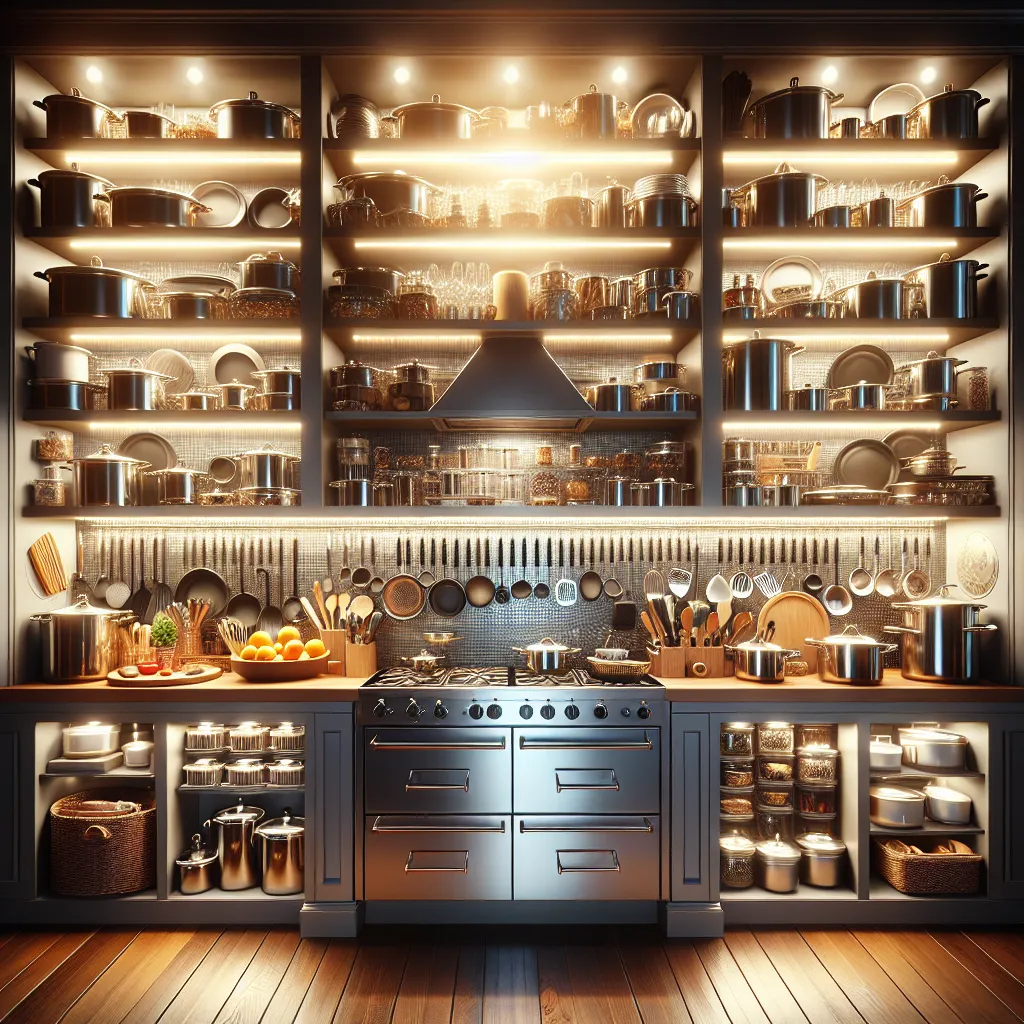Understanding Cookware Materials: A Comprehensive Guide
When it comes to choosing the right cookware for your kitchen, understanding the different materials used in cookware is essential. The choice of material can significantly impact the cooking performance, durability, and maintenance of the cookware. In this comprehensive guide, we will explore the various cookware materials and their characteristics to help you make an informed decision.
Stainless steel is a popular choice for cookware due to its durability, non-reactive nature, and ease of maintenance. It is versatile and can be used for different cooking techniques. Aluminum is another commonly used material, known for its excellent heat conduction. However, pure aluminum can react with acidic foods, so it is often combined with other materials such as stainless steel or coated with non-stick materials.
Cast iron cookware is prized for its excellent heat retention and heat distribution properties. Although it requires regular seasoning and maintenance to prevent rusting, it is a favorite for searing, sautéing, and baking. Copper cookware offers superior heat conductivity, making it ideal for precise temperature control, but it requires regular polishing to maintain its luster.
Non-stick cookware, such as Teflon-coated or ceramic-coated pans, provides easy food release and effortless cleaning. However, it is essential to use utensils that won’t scratch the non-stick surface to prolong its lifespan. Other materials like carbon steel, titanium, and enamel-coated cast iron also have their unique properties and are suitable for specific cooking tasks.
By understanding the characteristics of different cookware materials, you can make an informed decision based on your cooking preferences, maintenance routine, and budget. The right cookware material will enhance your culinary experience and contribute to delicious and well-prepared meals in your kitchen.
Essential Features to Look for When Buying Cookware
When it comes to choosing the right cookware for your kitchen, there are several essential features to consider that will ensure you make the best decision for your cooking needs. One of the most important aspects to look for when buying cookware is the material it is made from. Materials such as stainless steel, copper, aluminum, and cast iron offer different properties that can affect cooking performance and durability. Another crucial feature to consider is the type of cooking surface. Whether you prefer non-stick, stainless steel, or enameled cookware, each surface has its own benefits and drawbacks. Additionally, the versatility of the cookware is a key factor to keep in mind. Opting for pieces that can be used on various cooking surfaces, including stovetops, ovens, and even grills, can add convenience and functionality to your kitchen. Furthermore, the ease of cleaning and maintenance should not be overlooked. Cookware that is dishwasher safe or has simple care instructions can make your cooking experience more enjoyable. Considering these essential features when purchasing cookware will ensure that you find the perfect options to meet your cooking needs.
Choosing the Right Cookware for Your Cooking Style and Needs
When it comes to choosing the right cookware for your kitchen, it’s important to consider your cooking style and needs. The type of cookware you select can greatly impact the outcome of your culinary creations. For those who enjoy quick and efficient cooking, stainless steel or copper cookware may be the best choice due to their excellent heat conductivity and durability. On the other hand, non-stick cookware is ideal for those who prefer low-fat cooking and easy cleanup. For individuals who are passionate about traditional cooking methods, cast iron cookware is a classic option that offers versatility and long-lasting performance. Additionally, those with induction cooktops should opt for cookware specifically designed for induction cooking to ensure optimal results. By understanding your cooking style and needs, you can make an informed decision when choosing the right cookware for your kitchen.
Maintenance and Care Tips for Different Types of Cookware
Proper maintenance and care of your cookware is essential to ensure its longevity and performance in the kitchen. Different types of cookware require specific care to maintain their quality and cooking properties. Here are some maintenance and care tips for various types of cookware:
Stainless Steel Cookware:
Stainless steel cookware is durable and versatile, but it requires proper maintenance to prevent discoloration and maintain its luster. To clean stainless steel cookware, use a mixture of warm water and mild dish soap. Avoid using abrasive cleaners or scouring pads as they can scratch the surface. To restore the shine of stainless steel cookware, you can use a stainless steel cleaner or a paste of baking soda and water.
Cast Iron Cookware:
Cast iron cookware is prized for its excellent heat retention and non-stick properties when properly seasoned. After each use, clean the cookware with hot water and a brush. Avoid using soap, as it can strip away the seasoning. To maintain the seasoning, dry the cookware thoroughly and rub a thin layer of oil onto the surface before storing it. If rust appears, scrub the affected area with steel wool, then re-season the cookware.
Non-Stick Cookware:
Non-stick cookware requires gentle care to preserve its coating. Avoid using metal utensils that can scratch the non-stick surface. Clean the cookware with a soft sponge and mild dish soap. To prolong the lifespan of non-stick cookware, avoid using cooking sprays at high temperatures, as they can cause a buildup that is difficult to remove.
Copper Cookware:
Copper cookware requires regular maintenance to keep its shiny appearance. To clean copper cookware, use a mixture of salt and lemon juice or a specialized copper cleaner. After cleaning, dry the cookware to prevent water spots. To restore the shine, use a copper polish following the manufacturer’s instructions.
By following these maintenance and care tips, you can ensure that your cookware remains in excellent condition and continues to enhance your cooking experience for years to come.

